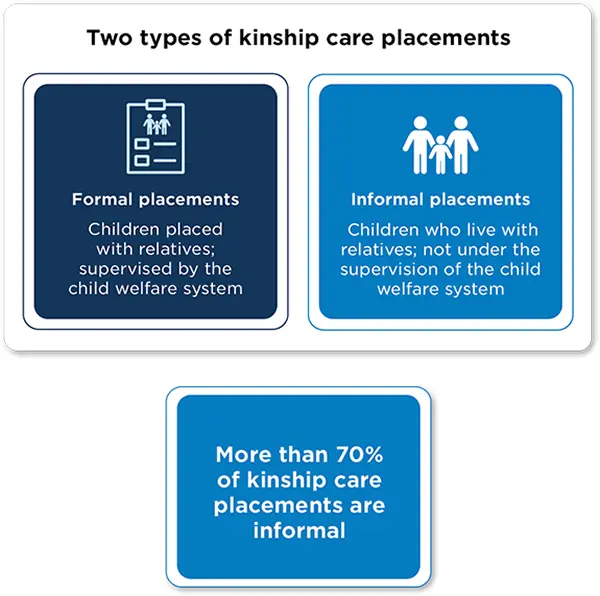Blog
Educational Enhancements of Children In Care Supported by Kinship Care
Youth who successfully learn how to read, write, and perform basic math skills are more likely to excel in adulthood, which supports overall well-being throughout their lives. However, many children living in out-of-home care have academic difficulties. This includes basic reading and math skills. Recent research provided Society for Research in Child Development shares that in order to improve academic outcomes and aim toward long-term success for children in out-of-home care, youth should live with relatives or other individuals with whom they have a close bond, also known as kinship care.
The term “kinship care” ultimately refers to placing children with relatives or family friends when birth parents are unable to care for their child(ren). ASCI, child welfare advocates, policymakers & more advocate for placing children with kin. Research and observations indicate that children placed with kin have better outcomes and an increased sense of family belonging compared to children who are placed in traditional foster care.
In 2013, approximately 2.2 million U.S. children were in some form of kinship care. Census data tell us that the number of children in kinship care has increased over the last few years to approximately 2.6 million children. There are two types of kinship care placements: formal and informal. In formal kinship care placements, children are placed with relatives and these families are supervised by the child welfare system. Informal kinship care families are not supervised by the child welfare system. It is important to note that the majority of children in kinship care are informally placed: At any given time, more than 70 percent of kinship care placements are informal.

This study includes the evaluation of the academic skills of children in out-of-home care. The study also involves the use of standardized test scores to assess children’s skills as opposed to personal influences like teachers’ and parents’ reports.
The findings were that children in formal kinship care performed the best out of children in any form of out-of-home care. Their performance was very close to children living with their birth or adoptive parents. This is exciting news! It shows that formal kinship care may be the main intervention tactic that helps eliminate deficits in academic functioning among youth in out-of-home care. To understand why formal kinship care may be more suitable for academic performance than informal kinship care, we must first acknowledge that one of the main differences between the two is that formal kinship care shares resources, services, and funding that are not given to informal kinship families. Because of this, the authors of this study believe that adding resources is the reason that formal kinship care helps the academic performance of the youth in their homes.
Essentially, kinship care families must have the chance to offer ideas to child welfare agencies, policymakers, and more in order to promote educational execution and the universal welfare of the family.
For more information, please visit Child Trends.